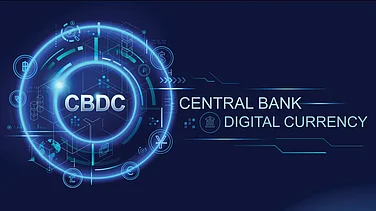In today's evolving marketplace, diversity and inclusion are more than just buzzwords; they are critical drivers of innovation, efficiency, and competitiveness in the logistics industry. Adopting a diverse workforce brings together varied perspectives and problem-solving approaches, which are essential for addressing modern supply chains' complex challenges. Inclusion ensures that all employees feel valued and empowered to contribute their best regardless of background.
As the logistics sector faces increasing demands for agility and adaptability, creating an inclusive environment is imperative to attract top talent, enhance operational performance, and drive sustainable growth. Diversity and inclusion are no longer optional; they are strategic imperatives for thriving in the current and future landscape of logistics.
Understanding Diversity and Inclusion in Logistics
Traditionally, the logistics sector has been dominated by men, but this norm is shifting. Recent statistics indicate that women now comprise approximately 41 percent of the logistics workforce, a notable increase from previous years. Logistics is fertile ground for diversity, with gender parity more prevalent within warehousing than in transport. However, the sector still needs to progress in areas such as women in leadership positions. Aligning the industry with the expectations of future employees and addressing job market pressures is crucial.
Embracing Diversity and Inclusion in the Logistics Industry
Understanding diversity and inclusion in logistics is essential for building a resilient and innovative industry. Diversity encompasses various demographics, including gender, race, ethnicity, age, and abilities, each contributing unique perspectives and strengths to the workforce.
All About Cultural Diversity
The logistics industry has long recognised the benefits of cultural diversity. By hiring people from different backgrounds, genders, ages, cultures, and identities, the industry enriches its work environment. This diversity leads to better decision-making, promotes innovation, and enhances overall performance. A diverse workforce brings a range of experiences and viewpoints, invaluable in a sector that constantly seeks to improve efficiency and service quality.
The Role of Inclusion
Inclusion is the strategy to ensure that these diverse voices are heard, respected, and valued. Inclusive teams in logistics enhance creativity and customer satisfaction while increasing employee engagement and retention. When employees feel included, they are more likely to contribute their best ideas and stay committed to the organisation, leading to a more dynamic and productive workplace. Additionally, an inclusive workplace opens up a wider talent pool, allowing logistics companies to attract and retain top talent from diverse backgrounds.
Moreover, diversity and inclusion in logistics translate into tangible business benefits. Companies that prioritise these values often see improved financial performance, as diverse teams are better equipped to understand and serve a wider customer base. This approach also aligns with the increasing demand for corporate social responsibility, enhancing a company's reputation and customer loyalty.
Leadership's Role in Promoting D&I
Leadership plays a critical role in building an inclusive culture. Leaders in the logistics industry must champion diversity and inclusion initiatives, setting a positive example and creating policies that support these values. Training programmes, mentorship opportunities, and employee resource groups are effective strategies to embed inclusion in the organisational culture.
Supply Chain Initiatives to Promote Diversity for the Long Run
Companies must commit to embedding diversity and inclusion (D&I) into their core values and operational strategies. This involves revisiting recruitment practices to eliminate biases, implementing comprehensive training programmes to promote an inclusive culture, and establishing clear metrics to track progress.
Collaboration with industry partners, community organisations, and educational institutions can further enhance these efforts by broadening the talent pipeline and sharing best practices. Leveraging technology to support D&I initiatives, such as using AI-driven tools to ensure fair hiring and performance evaluations, is another factor to impress on the need. By integrating these practices, companies can create a more dynamic and innovative workforce, driving sustainable growth and competitiveness in the marketplace.
(Vivek Juneja, Founder and Managing Director at Varuna Group)




















